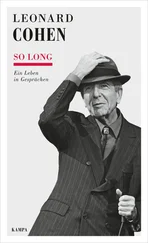And so on. I couldn’t hope to write down half the things he said. He raved like a lunatic, spit flying with every second word. I guess the disease was already nibbling at his brain, for he died like that, years later, raving. What a night! And from this distance, how sweet our argument now seems, two grown men lying on the floor! What a perfect night! I swear I can still feel the warmth of it, and what he did with Edith matters not at all, indeed, I marry them in their unlaw-ful bed, with an open heart I affirm the true right of any man and woman to their dark slobbering nights which are rare enough, and against which too many laws conspire. If only I could live in this perspective. How quickly they come and go, the memories of F., the nights of comradeship, the ladders we climbed and the happy views of simple human clockwork. How quickly pettiness returns, and that most ignoble form of real estate, the possessive occupation and tyranny over two square inches of human flesh, the wife’s cunt.
The Iroquois almost won. Their three major enemies were the Hurons, the Algonquins, and the French. ‘La Nouvelle-France se va perdre si elle n’est fortement et promptement secourue.’ So wrote le P. Vimont, Supérieur de Québec, in 1641. Whoop! Whoop! Remember the movies. The Iroquois was a confederation of five tribes situated between the Hudson River and Lake Erie. Going from east to west we have the Agniers (whom the English called Mohawks), the Onneyouts, the Onnontagués, the Goyoqouins (or Goyogouins), and the Tsonnontouans. The Mohawks (whom the French called Agniers) occupied a territory between the upper reaches of the Hudson River, Lake George, Lake Champlain, and the Richelieu River (first called the Iroquois River). Catherine Tekakwitha was a Mohawk, born 1656. Twenty-one years of her life she spent among the Mohawks, on the banks of the Mohawk River, a veritable Mohawk lady. The Iroquois were composed of twenty-five thousand souls. They could put two thousand five hundred warriors in the field, or ten per cent of the confederation. Of these only five or six hundred were Mohawks, but they were especially ferocious, and not only that, they possessed firearms which they got from the Dutch at Fort Orange (Albany) in exchange for furs. I am proud that Catherine Tekakwitha was or is a Mohawk. Her brethren must be right out of those uncompromising black and white movies before the Western became psychological. Right now I feel about her as many of my readers must feel about pretty Negresses who sit across from them in the subway, their thin hard legs shooting down from what pink secrets. Many of my readers will never find out. Is this fair? And what about the lily cocks unbeknownst to so many female American citizens? Undress, undress, I want to cry out, let’s look at each other. Let’s have education! F. said: At twenty-eight (yes, my friend, it took that long) I stopped fucking colors. Catherine Tekakwitha, I hope you are very dark. I want to detect a little whiff of raw meat and white blood on your thick black hair. I hope there is a little grease left in your thick black hair. Or is it all buried in the Vatican, vaults of hidden combs? One night in our seventh year of marriage Edith coated herself with deep red greasy stuff she had bought in some theatrical supply store. She applied it from a tube. Twenty to eleven, back from the library, and there she was, stark naked in the middle of the room, sexual surprise for her old man. She handed me the tube, saying: Let’s be other people. Meaning, I suppose, new ways to kiss, chew, suck, bounce. It’s stupid, she said, her voice cracking, but let’s be other people. Why should I diminish her intention? Perhaps she meant: Come on a new journey with me, a journey only strangers can take, and we can remember it when we are ourselves again, and therefore never be merely ourselves again. Perhaps she had some landscape in mind where she always meant to travel, just as I envisage a northern river, a night as clean and bright as river pebbles, for my supreme trip with Catherine Tekakwitha. I should have gone with Edith. I should have stepped out of my clothes and into the greasy disguise. Why is it that only now, years past, my prick rises up at the vision of her standing there so absurdly painted, her breasts dark as eggplants, her face resembling Al Jolson? Why does the blood rush now so uselessly? I disdained her tube. Take a bath, I said. I listened to her splashing, looking forward to our mid-night snack. My mean little triumph had made me hungry.
Lots of priests got killed and eaten and so forth. Micmacs, Abénaquis, Montagnais, Attikamègues, Hurons: the Company of Jesus had their way with them. Lots of semen in the forest, I’ll bet. Not the Iroquois, they ate priests’ hearts. Wonder what it was like. F. said he once ate a raw sheep’s heart. Edith liked brains. René Goupil got it on September 29, 1642, first victim in black robes of the Mohawks. Yum, yummy. Le P. Jogues fell under the ‘hatchet of the barbarian’ on October 18, 1646. It’s all down there in black and white. The Church loves such details. I love such details. Here come the little fat angels with their queer bums. Here come the Indians. Here comes Catherine Tekakwitha ten years later, lily out of the soil watered by the Gardener with the blood of martyrs. F., you ruined my life with your experiments. You ate a raw sheep’s heart, you ate bark, once you ate shit. How can I live in the world beside all your damn adventures? F. once said: There is nothing so depressing as the eccentricity of a contemporary. She was a Tortoise, best clan of the Mohawks. Our journey will be slow, but we’ll win. Her father was an Iroquois, an asshole, as it turns out. Her mother was an Algonquin Christian, baptized and educated at Three-Rivers, which happens to be a lousy town for an Indian girl (I was told recently by a young Abénaqui who went to school there). She was taken captive in an Iroquois raid, which was probably the best lay she ever had. Help me, someone, help my crude tongue. Where is my silver tongue? Aren’t I meant to speak of God? She was the slave of an Iroquois brave, and she had a wild tongue or something because he married her when he could have just pushed her around. She was accepted by the tribe and enjoyed all the rights of the Tortoises from that day on. It is recorded that she prayed incessantly. Glog, glog, dear God, hump, fart push, sweet Almighty, slurp, flark, glamph, hiccup, jerk, zzzzzz, snort, Jesus, she must have made his life hell.
F. said: Connect nothing. He screamed that remark at me while overlooking my wet cock about twenty years ago. I don’t know what he saw in my swooning eyes, maybe some glimmering of a fake universal comprehension. Sometimes after I have come or just before I fall asleep, my mind seems to go out on a path the width of a thread and of endless length, a thread that is the same color as the night. Out, out along the narrow highway sails my mind, driven by curiosity, luminous with acceptance, far and out, like a feathered hook whipped deep into the light above the stream by a magnificent cast. Somewhere, out of my reach, my control, the hook unbends into a spear, the spear shears itself into a needle, and the needle sews the world together. It sews skin onto the skeleton and lipstick on a lip, it sews Edith to her greasepaint, crouching (for as long as I, this book, or an eternal eye remembers) in our lightless sub-basement, it sews scarves to mountain, it goes through everything like a relentless bloodstream, and the tunnel is filled with a comforting message, a beautiful knowledge of unity. All the disparates of the world, the different wings of the paradox, coin-faces of problem, petal-pulling questions, scissors-shaped conscience, all the polarities, things and their images and things which cast no shadow, and just the everyday explosions on a street, this face and that, a house and a toothache, explosions which merely have different letters in their names, my needle pierces it all, and I myself, my greedy fantasies, everything which has existed and does exist, we are part of a necklace of incomparable beauty and unmeaning. Connect nothing: F. shouted. Place things side by side on your arborite table, if you must, but connect nothing! Come back, F. shouted, pulling my limp cock like a bell rope, shaking it like a dinner bell in the hands of a grand hostess who wants the next course served. Don’t be fooled, he cried. Twenty years ago, as I say. I am just speculating now what it was that occasioned his out-burst, that is, some kind of smirk of universal acceptance, which is very disagreeable on the face of a young man. It was that same afternoon that F. told me one of his most remarkable lies.
Читать дальше












